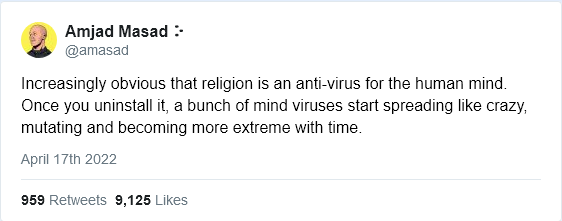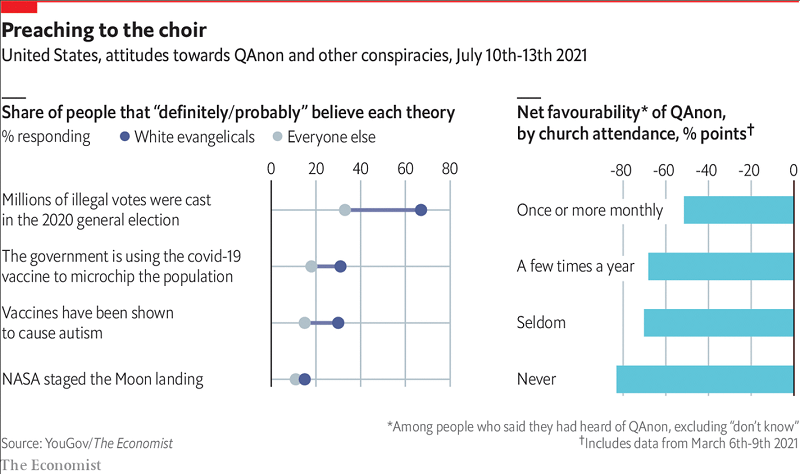At Astral Codex Ten, Scott Alexander considers the old saying — often mis-attributed to G.K. Chesterton or C.S. Lewis:
There’s a popular saying among religious apologists:
Once people stop believing in God, the problem is not that they will believe in nothing; rather, the problem is that they will believe anything.
Big talk, although I notice that this is practically always attributed to one of GK Chesterton or CS Lewis, neither of whom actually said it. If you’re making strong claims about how everybody except you is gullible, you should at least bother to double-check the source of your quote.
Still, it’s worth examining as a hypothesis. Are the irreligious really more likely to fall prey to woo and conspiracy theories?
This Economist article examined the question and concluded the opposite. See especially this graph:
“White evangelicals” are more likely to believe most measured conspiracy theories, and churchgoers were more likely to believe in QAnon in particular.
There’s an obvious confounder here: the authors are doing the usual trick where they cherry-pick right-wing examples of something bad, show that more right-wingers are in favor of them, then conclude that Science Has Proven Right-Wingers Are Bad. QAnon, illegal votes, and COVID microchips are inherently right wing conspiracy theories; vaccines/autism has probably become right-coded post-COVID. Only the moon landing seems politically neutral, and it’s hard to tell if there’s a real difference on that one. So this just tells us that white evangelical church-goers are further right than other people, which we already know.
These data still deflate some more extreme claims about religion being absolutely protective against conspiracy theories. But I was interested in seeing how people of different faiths related to politically neutral conspiracies.





